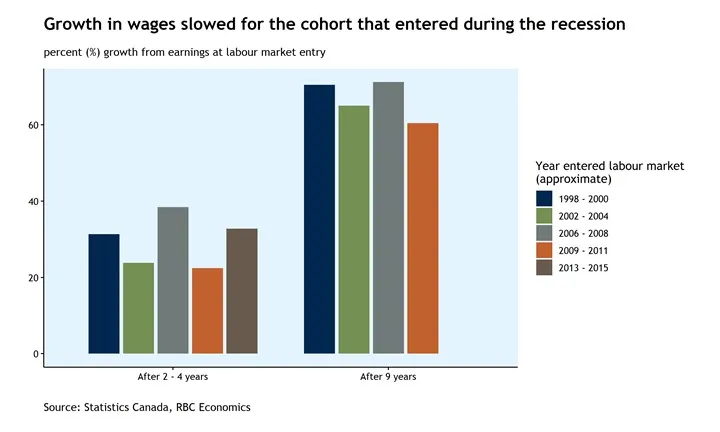
The ILO’s Decent Work Agenda
Decent work sums up the aspirations of people in their working lives. It involves opportunities for work that is productive and delivers a fair income, security in the workplace and social protection for all, better prospects for personal development and social integration, freedom for people to express their concerns, organize and participate in the decisions that affect their lives and equality of opportunity and treatment for all women and men.
Productive employment and decent work
Productive employment and decent work are key elements to achieving a fair globalization and poverty reduction. The ILO has developed an agenda for the community of work looking at job creation, rights at work, social protection and social dialogue, with gender equality as a crosscutting objective.
There has been an increased urgency among international policy-makers, particularly in the wake of the global financial and economic crisis of 2008, to deliver quality jobs along with social protection and respect for rights at work to achieve sustainable, inclusive economic growth, and eliminate poverty.
Decent work and the Sustainable Development Goals
During the UN General Assembly in September 2015, decent work and the four pillars of the Decent Work Agenda – employment creation, social protection, rights at work, and social dialogue – became integral elements of the new 2030 Agenda for Sustainable Development. Goal 8 of the 2030 Agenda calls for the promotion of sustained, inclusive and sustainable economic growth, full and productive employment and decent work, and will be a key area of engagement for the ILO and its constituents. Furthermore, key aspects of decent work are widely embedded in the targets of many of the other 16 goals of the UN’s new development vision.
Leaders’ statements and action plans of the G20, G7, EU, African Union and other multilateral and regional bodies also confirm the significance of decent work to crisis recovery and sustainable development.
SDGs Addressed in the Article
- SDG 8: Decent Work and Economic Growth
Specific Targets Based on the Article’s Content
- Target 8.5: By 2030, achieve full and productive employment and decent work for all women and men, including for young people and persons with disabilities.
- Target 8.8: Protect labor rights and promote safe and secure working environments for all workers, including migrant workers, in particular women migrants, and those in precarious employment.
Indicators Mentioned or Implied in the Article
- Indicator 8.5.1: Average hourly earnings of female and male employees, by occupation, age group, and persons with disabilities.
- Indicator 8.8.1: Frequency rates of fatal and non-fatal occupational injuries, by sex and migrant status.
Table: SDGs, Targets, and Indicators
| SDGs | Targets | Indicators |
|---|---|---|
| SDG 8: Decent Work and Economic Growth | Target 8.5: By 2030, achieve full and productive employment and decent work for all women and men, including for young people and persons with disabilities. | Indicator 8.5.1: Average hourly earnings of female and male employees, by occupation, age group, and persons with disabilities. |
| SDG 8: Decent Work and Economic Growth | Target 8.8: Protect labor rights and promote safe and secure working environments for all workers, including migrant workers, in particular women migrants, and those in precarious employment. | Indicator 8.8.1: Frequency rates of fatal and non-fatal occupational injuries, by sex and migrant status. |
Explanation:
The article primarily focuses on the concept of decent work and its connection to the Sustainable Development Goals (SDGs). It highlights the importance of decent work in achieving sustainable development and poverty reduction. Based on the content of the article, the following analysis can be made:
1. SDG 8: Decent Work and Economic Growth is addressed in the article as it discusses the concept of decent work and its significance in achieving sustainable economic growth.
2. The specific targets identified based on the article’s content are:
– Target 8.5: By 2030, achieve full and productive employment and decent work for all women and men, including for young people and persons with disabilities.
– Target 8.8: Protect labor rights and promote safe and secure working environments for all workers, including migrant workers, in particular women migrants, and those in precarious employment.
3. The article mentions or implies indicators that can be used to measure progress towards the identified targets:
– Indicator 8.5.1: Average hourly earnings of female and male employees, by occupation, age group, and persons with disabilities. This indicator can measure the progress in achieving equal and fair wages for different groups of workers.
– Indicator 8.8.1: Frequency rates of fatal and non-fatal occupational injuries, by sex and migrant status. This indicator can measure the progress in ensuring safe and secure working environments for all workers, including migrant workers.
The table summarizes the findings from the analysis, presenting the relevant SDGs, targets, and indicators identified in the article.
Source: ilo.org







